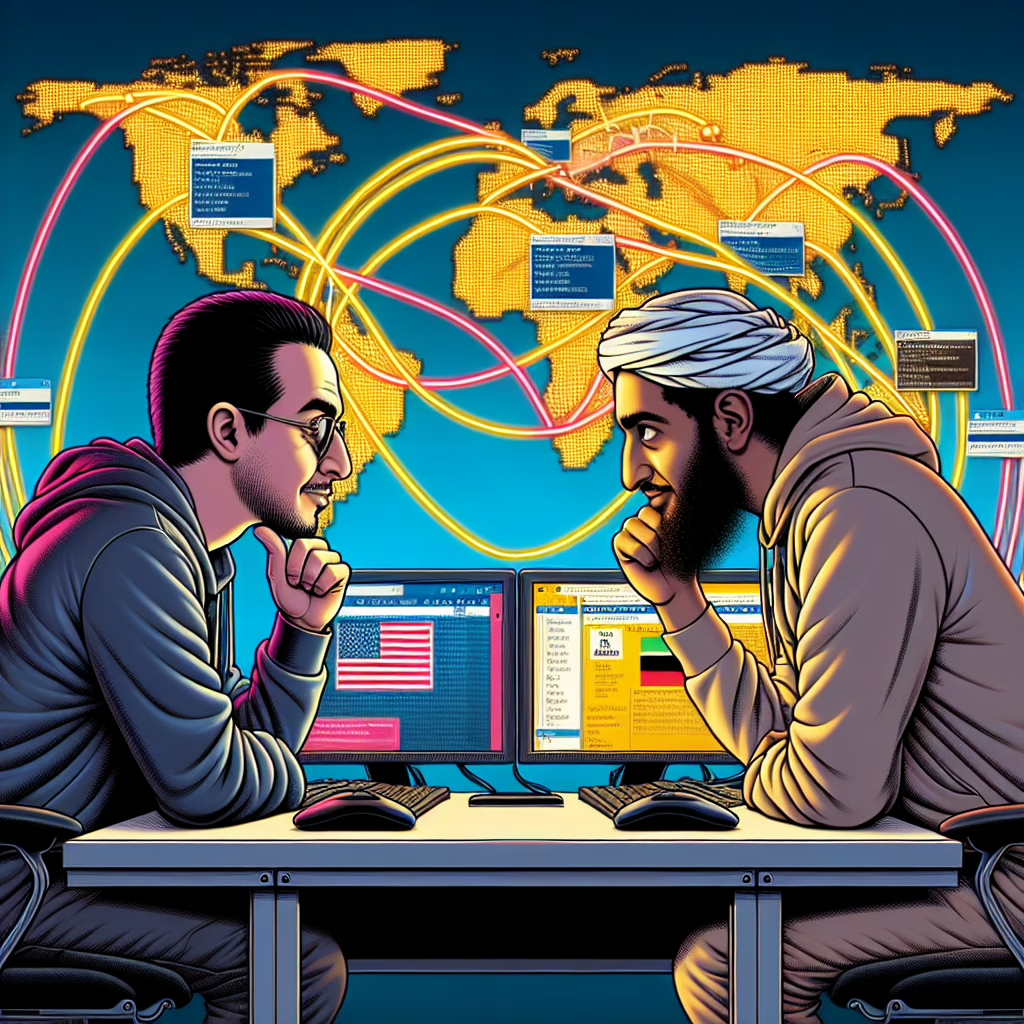In a plot twist that could give any cyber-thriller a run for its money, Chinese police have pointed fingers at the NSA for alleged advanced cyberattacks. Yes, you heard that right! It seems we have a classic case of ‘who hacked whom?’ unfolding right before our screens. While one might expect this to be the opening scene of an espionage film, it’s the real world we live in—where digital spies are just as common as coffee breaks.
Unpacking the Allegations: The Chinese Perspective
The Chinese authorities have accused the National Security Agency (NSA) of engaging in nefarious activities involving cyberattacks aimed at their networks. According to them, these digital intrusions are nothing short of a high-tech game of tag, where the NSA is apparently the tagger with advanced skills. The details provided by Chinese officials paint a picture of sophisticated hacking efforts that would make any tech enthusiast giddy. It’s almost as if the NSA has turned into a secret agent in a world where every keystroke is monitored.
But let’s take a step back. The NSA has long been synonymous with intelligence gathering, often shrouded in an air of mystery and intrigue. This accusation isn’t new; it’s like déjà vu all over again. The agency has been linked to various cyber incidents globally, so it’s not surprising that they find themselves at the center of yet another cyberattack drama.
The Cyberattack Chronicles: A Tale of Two Nations
Now, before we dive deeper into this digital saga, let’s ponder: what exactly does this mean for international relations? The implications are as vast as the internet itself. If allegations hold weight, we might witness a new chapter in cybersecurity tactics where nations engage in online warfare rather than traditional military confrontations. Picture this: instead of troops marching on borders, cyber warriors are launching attacks from their home offices, fueled by coffee and maybe a few too many energy drinks.
- Cyberwarfare: A new battleground less visible than you might expect.
- International policies: Need to adapt as the digital landscape evolves.
- Public awareness: Crucial for users in protecting themselves.
The Chinese police have claimed that these advanced attacks involved techniques that could only be described as next-level wizardry—think of it as hacking with a PhD. They’ve alleged that sensitive information was accessed and even manipulated, leading to concerns about national security on both sides. It raises eyebrows and questions about how safe our digital lives really are.
Can We Trust Our Digital Defenders?
With all this finger-pointing, let’s not forget to play devil’s advocate here. The NSA may want to defend itself by saying that it operates under strict regulations and oversight—and who wouldn’t want to avoid being labeled the villain in this unfolding narrative? But can we truly trust any government agency with our data? If you think about it, trusting any entity with sensitive information is like leaving your front door wide open while you take a nap on the couch—it’s risky business!
Interestingly enough, this situation shines a light on the importance of cybersecurity awareness for individuals and organizations alike. If countries are engaged in covert operations against one another, what does that mean for everyday users? Should we all start wearing tinfoil hats while browsing? Or perhaps just invest in stronger passwords and VPNs?
What Lies Ahead for Cybersecurity?
As 2025 approaches, we can expect to see cybersecurity evolve at an unprecedented pace. With each passing day, new technologies emerge that either bolster our defenses or create fresh vulnerabilities. It’s like a never-ending game of cat and mouse—except sometimes the cat is also wearing a spyglass.
This drama raises essential questions about global cybersecurity policies and how they affect everyone from big corporations to average Joe users trying to stream their favorite shows without interruption. Cybersecurity experts emphasize that staying informed and vigilant is crucial as technology continues to evolve.
In conclusion, whether or not the NSA is guilty as charged remains to be seen. What is clear, though, is that cybersecurity isn’t just about protecting data; it’s about safeguarding relationships between nations and ensuring peace in the digital realm. So next time you hear about cyberattacks or blame shifting between nations, remember—it’s all part of the ongoing saga of our interconnected world.
We’d love to hear your thoughts on this intriguing situation! Do you believe there’s truth behind these allegations? Are you convinced that cybersecurity will become even more critical in our daily lives? Share your opinions in the comments below!
And special thanks to TechRadar for providing the inspiration for today’s discussion!

